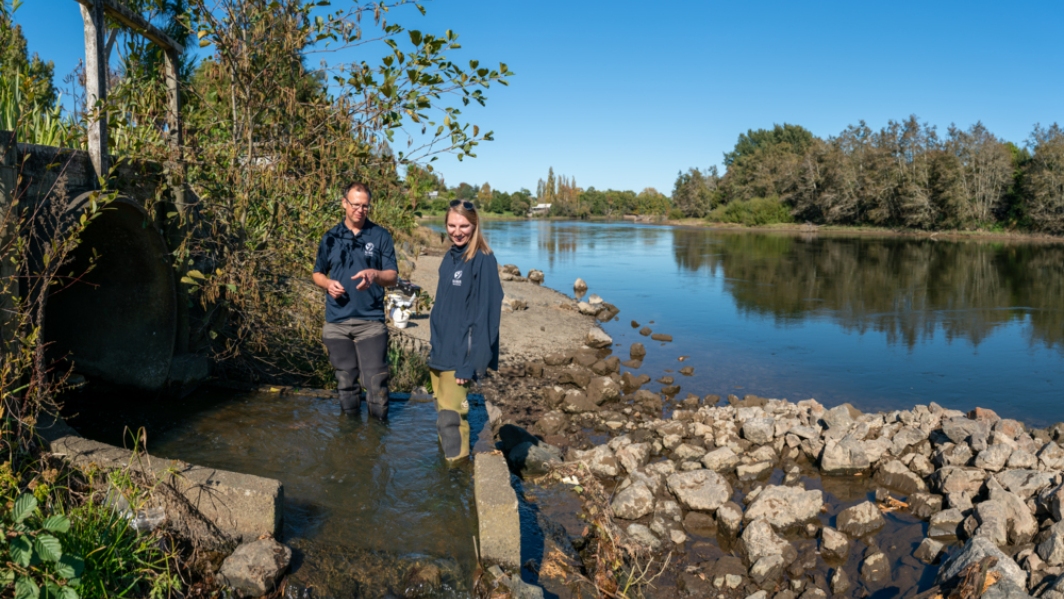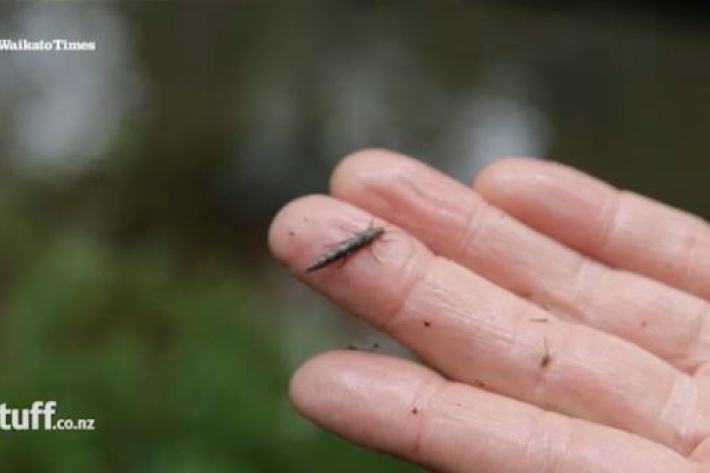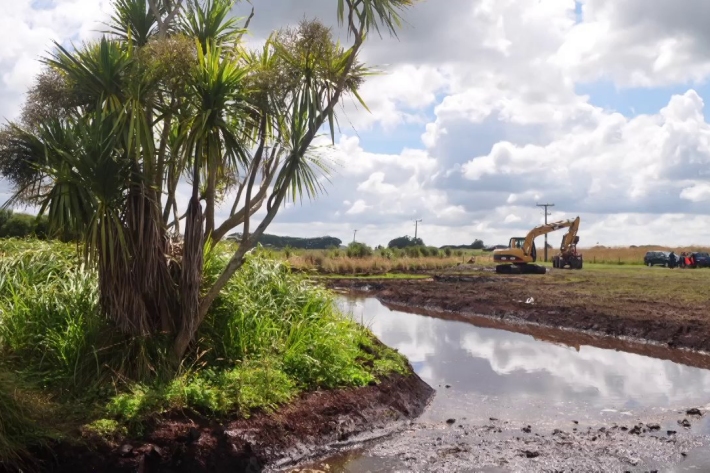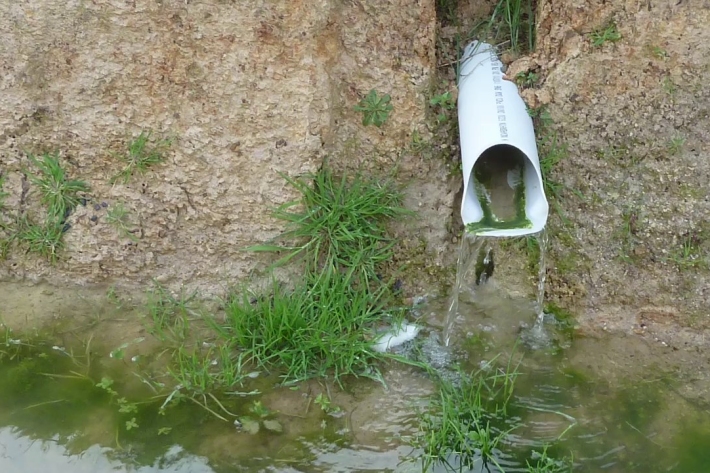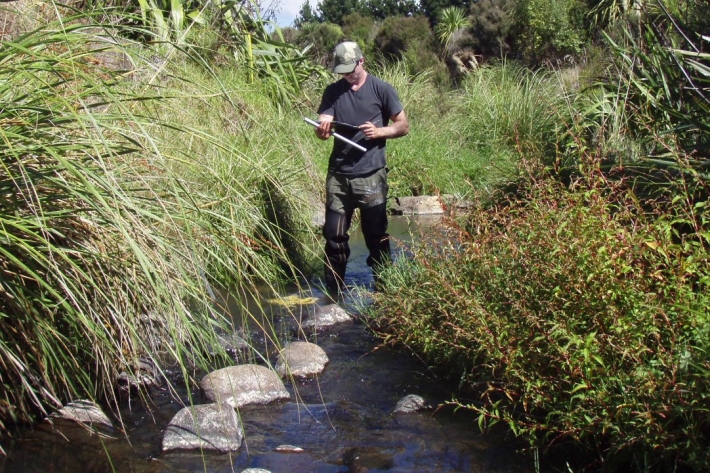-

Voyage leader's final update
Blog11 March 2015Now back on dry land, Voyage Leader Richard O'Driscoll reflects on the final days of RV Tangaroa's 2015 Antarctica expedition. -
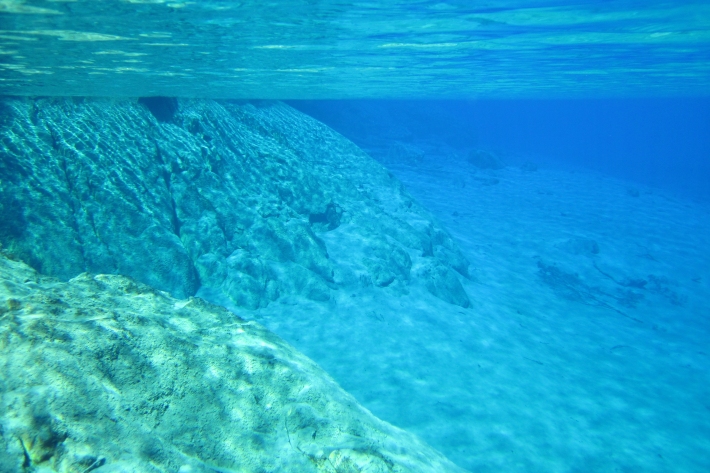
NELSON MAIL: Blue Lake a New Zealand treasure
Media release03 March 2015Water in the Blue Lake is the clearest freshwater ever reported. -

Lake sediments reveal frequency of Hawke’s Bay quakes
News article19 February 2015An international team of scientists has analysed 7000 years’ worth of lake-bottom mud from central Hawke’s Bay to work out how often the region might expect earthquakes. -
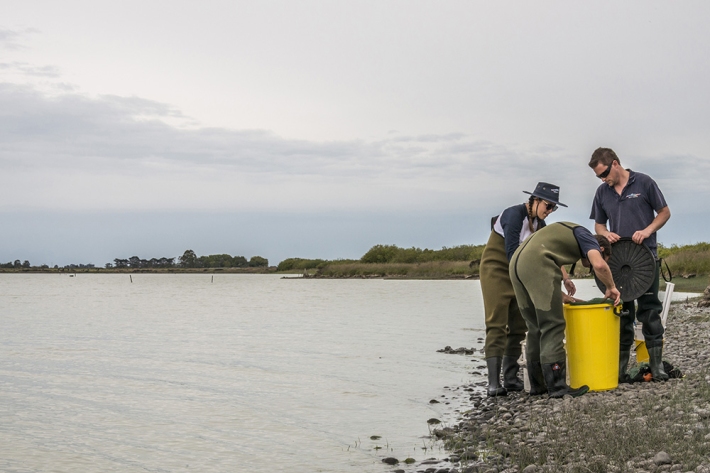
Summer Series #5: A helping hand
News article20 January 2015Te Waihora is a special lake in need of some intensive care. Together, scientists, iwi, locals and environmentalists are pooling their knowledge and resources to make it better. -
NIWA ecologists catch on to a bug's life
News article16 December 2014Kneeling in the mud under the cover of trees, covered in anoraks, sandflies and dedication, three scientists are looking out for the little guy. -

Climate change freshwater impacts assessments
New Zealand’s climate is changing – and so are our freshwaters. -

Scientists make rare find in Auckland streams
News article13 November 2014NIWA and Auckland Council freshwater scientists using fish pheromone samplers have made a rare discovery in two Auckland streams. -

CHES - smarter use of New Zealand’s river waters
CHES (Cumulative Hydrological Effects Simulator) software tool predicts how water flows in a catchment will change with multiple water uses (e.g. direct abstractions or storage reservoirs) and what the consequences will be to in-stream ecosystems and reliability of water-take. -

C-CALM: modelling annual contaminant loads to inform stormwater planning and management
NIWA’s Catchment Contaminants Loads Model (C-CALM) is a spatial decision support system for planning applications. It estimates annual contaminant loads at the neighbourhood to stormwater management unit (sub-catchment) scale, from diffuse sources, for Total Suspended Solids (TSS) and particulate and dissolved zinc and copper. The estimated load is then adjusted for water treatment.

